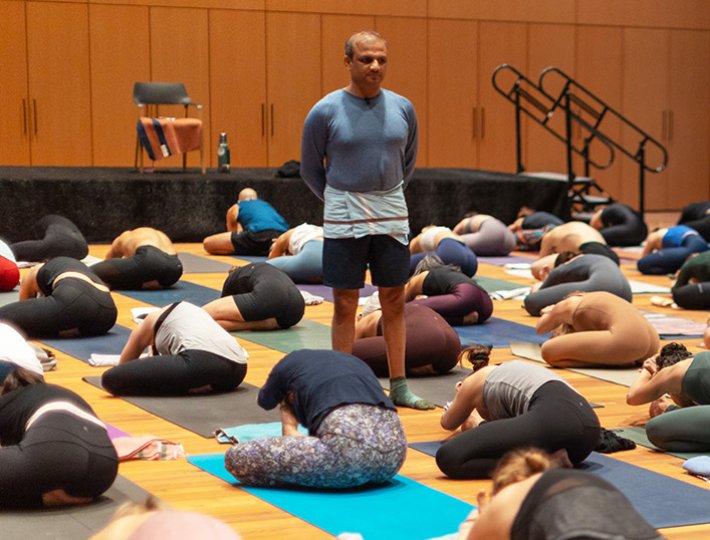Over the past few decades, antidepressant use has risen exponentially. A 2011 report from the National Center for Health Statistics found that between the years 1988 to 1994 and 2005 to 2008, the number of American teens and adults taking this medication has increased by almost 400 percent. Yes, you read that right—400 percent. This alarming number begs a major question: Are people more depressed than ever? A 2014 article in Psychology Today seems to think so. A few reasons they cite for the significant spike in mental health issues include a possible decline in the stigma and speculation that we are, in fact, suffering more than before due to weaker community ties (perhaps related to technology), a focus on fame and fortune, and unrealistically high expectations.
Regardless the reason why you may be on medication for depression, the good news is, there are things you can do to make sure you’re maximizing its benefits. While there’s no single cure-all for depression, using these six science-backed strategies in conjunction with your antidepressant can be a step in the right direction. Ultimately, the path to conquering depression is an incredibly individual one where trial and error under a doctor’s supervision is often the best way to determine what works for you.
1. Commit to exercise.
Working out is one of the most talked-about ways to combat depression. When you exercise, your body releases “feel good” chemicals known as endorphins, which interact with receptors in your brain that reduce the perception of pain or sadness, explains James Greenblatt, M.D., a psychiatrist and Assistant Clinical Professor of Psychiatry at Tufts University School of Medicine and Dartmouth College Geisel School of Medicine. Numerous studies, like one published in The National Journal of Neuroscience this year, have consistently reported the benefits of exercise for depression through its effects on key neurotransmitters that play major roles in causing (and relieving) depression.
Greenblatt also notes that “what is often missed is that many patients with depression lack the energy and motivation to begin exercising, even when they know it could help them.” Being on antidepressants can help patients get to a place where they feel like they are able to commit to starting an exercise regimen. Additionally, one of the most important perks of fitness is that it can help prevent a relapse in those with depression.
2. Take up meditation.
“Mindfulness, which is the act of engrossing oneself in the present moment, can help improve cognitive symptoms of depression such as distorted thinking behavior and difficulty with concentration,” Greenblatt says. “By training an individual’s mind to maintain focus on the present, it can help prevent the mind from wandering into negative thinking patterns that is often seen in depression.”
Besides supporting antidepressant therapy, mindfulness also can help prevent relapses. In an April 2016 study published in the Journal of American Medical Association, researchers found that mindfulness-based cognitive therapy (MBCT) reduced the risk for depression relapse in patients with recurrent depression by more than 30 percent overall. Greenblatt adds that “in the study, participants with the worst depression symptoms actually derived a greater benefit from MBCT, meaning that it could be the most beneficial for patients with severe depression.”
If you really want to get the full effects of mindfulness, try combining it with exercise. A 2015 study published in Translational Psychiatry found that patients who combined 30 minutes of meditation with 30 minutes of exercise twice a week for eight weeks reported significantly less depressive symptoms at the end of the session. In the scheme of things, two hours a week is a small amount of time to commit for such a major benefit.
Related: How Yoga Provides Hope and Healing from Depression
3. Add key supplements to your diet.
The use of pharmaceutical-grade nutritional supplements in the treatment of depression is still an emerging field, but one that’s been around for awhile and is now being paid a significant amount of attention. Just last month, researchers published a systematic review in the American Journal of Psychiatry, which analyzed 40 previous studies examining whether certain nutrients could enhance the effects of antidepressants. The authors found that combined use of high-quality nutritional supplements, such as L-methylfolate, omega-3 fatty acids, vitamin D, and S-adenosylmethionine (SAMe) with antidepressants may reduce depressive symptoms. Omega-3 fatty acids were found to be particularly promising, with six out of eight of the previous studies analyzed showing a significant improvement in patients taking it over a placebo.
4. Correct any nutritional deficiencies.
Another smart way you can enhance the effect of antidepressant medications is to understand how underlying nutritional deficiencies might be affecting you. “Nutritional deficiencies in vitamin B12, vitamin D, and iron can directly affect an individual’s response to their antidepressant therapy,” Greenblatt says. “If these nutritional deficiencies are corrected, antidepressants tend to be more helpful in managing depressive symptoms. I often see effect among individuals with a deficiency in vitamin B12, which is more common than it is addressed by psychiatrists.” Knowing where you’re lacking (nutritionally speaking) can also help explain symptoms that are related to depression, like fatigue and cognitive difficulties, and fixing those gaps in your nutrition can lessen those symptoms so your antidepressant can fully do its job.
5. Focus on a healthy diet.
Beyond adding specific nutritional elements to your regimen, it’s also important to commit to eating right. Greenblatt explains that research has demonstrated that brain synapses, which are responsible for communication between neurotransmitters, are adversely affected by poor diets, particularly those that are high in sugar. Studies like the one published in The American Journal of Clinical Nutrition in 2015 have also confirmed that an unhealthy diet is a major risk factor for depression. “Diets high in refined, sugary, and fried foods can actually deplete levels of essential nutrients such as omega-3 fatty acids and B vitamins,” Greenblatt warns. If you’re taking supplements, those nutrients are what you’re working hard to keep in your body, so while splurging from time to time is totally fine, making smart food choices is something that will aid your antidepressant in working its medical magic.
6. Continue talk therapy.
There’s good reason your psychiatrist wants you to go to therapy, and many even require it. Whether it’s psychoanalysis, cognitive behavioral therapy (CBT), or narrative therapy, talking to someone qualified on a regular basis is an crucial component of any antidepressant regimen. Numerous studies, including a comprehensive one published in 2014 in World Psychiatry, have demonstrated that the combination of psychotherapy and antidepressants is more beneficial than either of the therapies alone. Greenblatt says this is because talk therapy aims to illuminate the negative thoughts that are the hallmark of depression. “CBT [in particular] involves your active participation in understanding the behaviors and emotional components embedded in your depression,” he explains. “It helps you identify negative thoughts that sustain a depressed mood and replace them with more positive and realistic thoughts. It also offers you a guided process for dealing with the self-defeating tendency to ruminate.”








Comments (0)